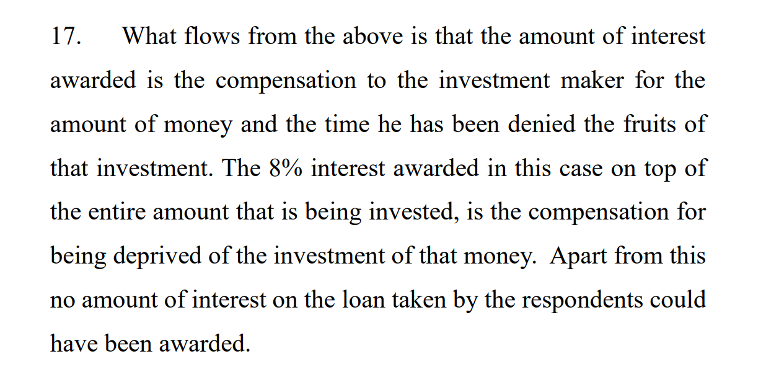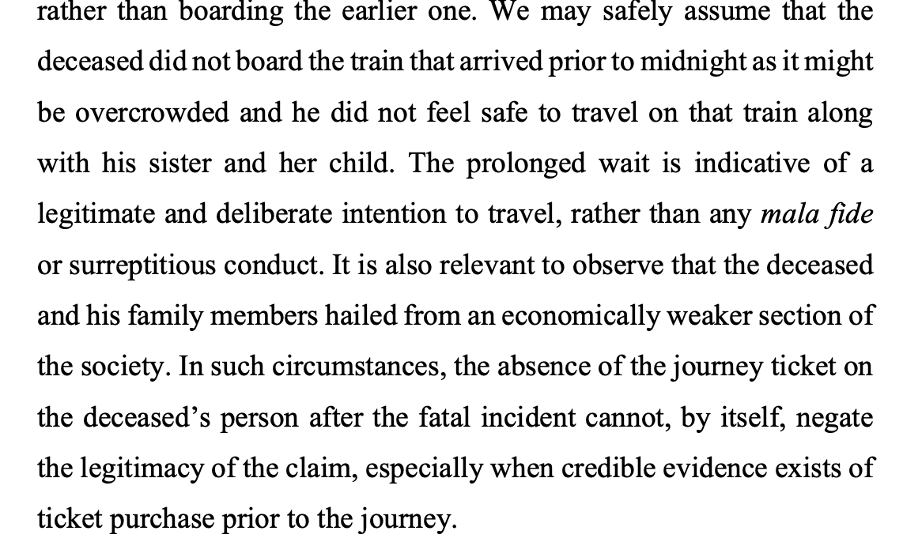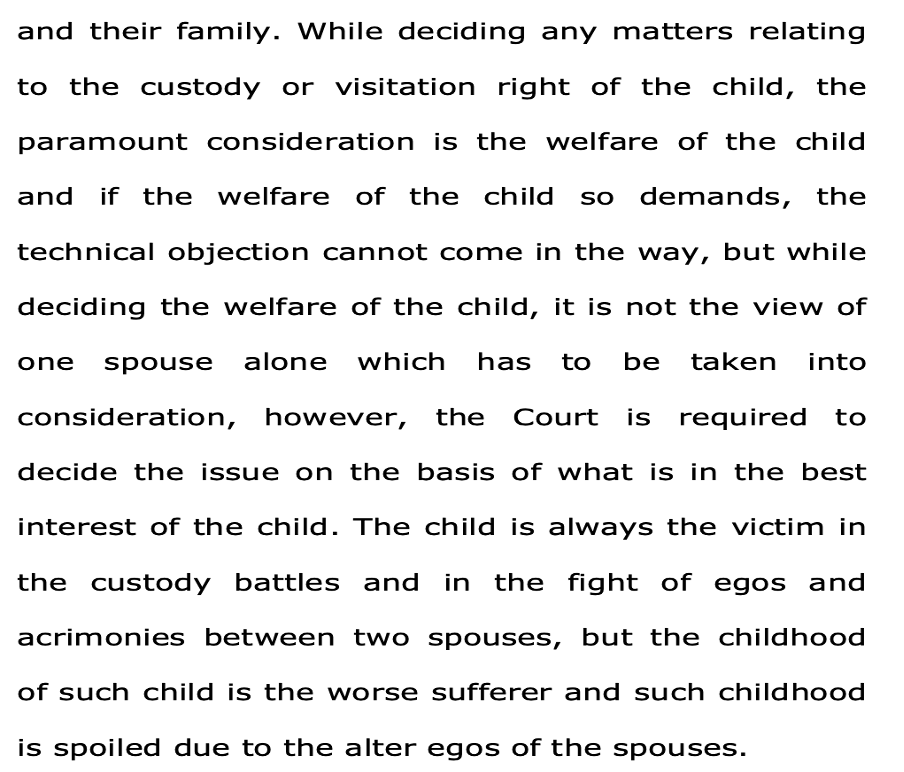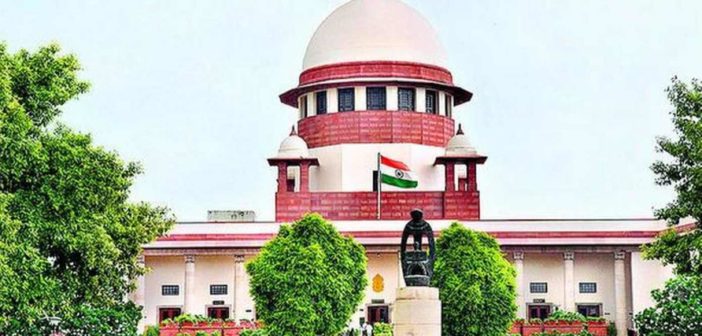In this edition of Court Judgements review, we look at the Supreme Court’s judgement on Developer’s liability for failure to deliver flat on time, Delhi High Court’s judgement on railway compensation claim in absence of railway ticket, Madras High Court’s judgement on NHAI toll collection and road maintenance, and also on treating same-sex couples as a family, and Orissa High Court on visitation Rights of the Parents.
Supreme Court: Developer not liable for the interest on the bank loan taken by the Homebuyer for delay in flat delivery.
The Apex Court, in Greater Mohali Area Development Authority (GMADA) vs. Anupam Garg & Ors, held that while the homebuyer is entitled to be compensated for the deficiency in service such as delay in flat delivery as per the agreement, the developer is not liable to pay any amount of the interest on the bank loan taken by the homebuyer for the purchase of flat.
The present appeals arise from a judgment dated 1 April 2019 by the National Consumer Disputes Redressal Commission (NCDRC) in First Appeal Nos. 1852 and 1853 of 2018, filed by the Greater Mohali Area Development Authority (GMADA). GMADA challenged an earlier order dated 1 March 2018 by the Punjab State Consumer Disputes Redressal Commission, which directed it to refund the full amount deposited by the complainants with 8% interest, along with compensation for mental harassment, litigation costs, and interest paid on housing loans.
The case concerns GMADA’s 2011 housing scheme, “Purab Premium Apartments” in Sector 88, Mohali. The complainant had booked a 2BHK + Servant Room flat by paying ₹5.5 lakh (10% of ₹55 lakh) and was allotted a unit through a draw of lots. Although possession was promised by May 2015, little construction progress was made. After being verbally assured of a refund with interest, the complainant later received a possession offer in June 2016 but found significant deviations in the promised amenities. He then filed a consumer complaint seeking redress.
The State Commission decided in favour of the complainants, noting that GMADA hadn’t provided any evidence that all promised facilities were in place. It also said the arbitration clause didn’t stop the Consumer Commission from hearing the case. Since GMADA failed to complete the project on time, it couldn’t stop buyers from asking for a refund, especially when others had already been given similar relief.
GMADA was directed to refund the full amount with 8% compound interest, pay ₹60,000 for mental harassment, ₹30,000 for legal costs, and also repay the interest the complainants had paid to banks on their home loans. GMADA appealed to the NCDRC, but the order was upheld. It challenged this order in the Apex Court, challenging only the part where it was asked to repay the bank loan interest in addition to the 8% interest already awarded.
The Apex Court noted that while the Consumer Commissions are empowered to award compensation beyond the contractual terms, such compensation must be grounded in reason and proportionate to the loss suffered. Citing Bangalore Development Authority vs. Syndicate Bank and Ghaziabad Development Authority vs. Balbir Singh, the Court reiterated that compensation can take various forms depending on specific facts, including the stage of completion and nature of the deficiency in service. However, it emphasised that uniform rules cannot be applied in all such cases.
The Court held that the Commission erred in treating loan interest as an automatic liability of GMADA. It was further clarified that whether a buyer uses personal savings or avails a loan is immaterial to the service provider. The builder is only liable to compensate for the deficiency in service, not to bear the financial arrangements of the buyer.

Thus, the Court set aside the direction requiring GMADA to reimburse the bank loan interest. Accordingly, the appeal is disposed of.
Delhi HC: Absence of travel ticket alone cannot, by itself, negate the legitimacy of the compensation claim
The Delhi High Court, in Sh.Kamtu Anuragi & Anr. vs. Union of India, held that the absence of the journey ticket on the deceased’s person after the fatal incident cannot, by itself, negate the legitimacy of the claim, especially when credible evidence exists of ticket purchase prior to the journey.
The appellants approached the High Court under Section 23 of the Railway Claims Tribunal Act, 1987, challenging the Tribunal’s order dated 16 July 2018, which dismissed their claim for compensation following the death of their son, Lakhan Anuragi.
According to the appellants, the deceased was travelling with his sister and nephew on Train No. 12189 (Maha Kaushal Express) from Mahoba to Hazrat Nizamuddin on 03 October 2017. They had purchased three unreserved journey tickets from Mahoba at 17:26 hrs. On 04 October 2017, while relieving himself near the door of the coach, Lakhan accidentally slipped and fell from the running train near Bhandai Railway Station. He was taken to the hospital but later died due to his injuries.
The Railway Claims Tribunal rejected the claim, primarily on two grounds- the ticket issued on 03 October 2017 had expired by midnight, and hence Lakhan was not a bonafide passenger at the time of the accident, and there were inconsistencies in the evidence regarding ticket recovery, which cast doubt on the appellants’ claim.
After hearing both sides, the High Court observed that the unreserved ticket issued to Lakhan was valid for 24 hours and had not expired at the time of the accident. It found no evidence that Lakhan had left the train or that the journey had ended. Citing the Supreme Court’s decision in Union of India vs. Rina Devi, the Court noted that in cases involving accidental falls from trains, the presumption is in favour of the deceased being a bonafide passenger unless the Railways can prove otherwise. The Court criticised the Tribunal’s narrow interpretation of what constitutes a valid journey and held that the Railways failed to rebut the presumption under Section 124-A of the Railways Act.

Accordingly, the High Court allowed the appeal, set aside the Tribunal’s order, and held that Lakhan’s death resulted from an “untoward incident” while he was a bonafide passenger. The Court awarded the family ₹8 lakh in compensation, along with interest at 12% per annum from the date of the incident until the actual date of payment.
Madras HC: NHAI cannot collect toll without maintaining the Highway as per standards.
In V Balakrishnan vs. The General Manager (T) and others, the Madurai Bench of the Madras High Court directed the National Highways Authority of India (NHAI) not to collect toll fees from road users on the Madurai–Tuticorin stretch of NH-38 until the road is properly maintained.
The petitioner sought a writ of mandamus to direct respondents, including NHAI officials, to take appropriate action against the Director Madurai-Tuticorin Expressway Ltd (fifth respondent) for mismanaging funds that were meant for planting saplings along NH-38, as per a Termination Agreement dated 20 June 2022. The petitioner also requested the Court to direct the authorities to plant trees along both sides and the median of the highway, based on a representation he had made on 29 October 2024.
The petitioner’s counsel argued that the maintenance contract between NHAI and the fifth respondent had already been terminated on 17 March 2023 because the contractor failed to maintain the road as per NHAI standards. Reference was made to a letter dated 18 January 2022 from NHAI’s Regional Officer in Madurai, which highlighted the poor condition of the highway. Based on these facts, the petitioner submitted that toll fees should not be collected from road users when the highway is not maintained according to the standards prescribed under the National Highways Authority of India Act, 1988, and its relevant rules and schemes.
The Court noted that the poor condition of the highway was admitted and not disputed by NHAI. Yet, no corrective action had been taken. Despite the termination of the contract due to the contractor’s failure, NHAI continued to collect tolls from vehicles plying on this stretch, which the petitioner argued was unjustified and illegal. The petitioner emphasised that road users are entitled to use properly maintained highways in exchange for toll fees, and when this condition is not met, toll collection becomes impermissible.
In response, the Standing Counsel for NHAI argued that the relief sought was contractual in nature and related to the performance and alleged breach of the concession agreement dated 24 July 2006 between NHAI and the fifth respondent. It was further contended that the petitioner had no privity of contract and that arbitration proceedings were already ongoing between the parties, making the writ petition non-maintainable.
However, the Court rejected this argument, holding that the petitioner, as a road user and a toll payer, had the right to file the writ petition. The Court held that the pendency of arbitration proceedings did not prevent judicial intervention under Article 226, particularly when it concerned the public’s right to safe roads and proper use of public funds. The Court emphasised that NHAI cannot collect toll fees from the public without ensuring that the road is maintained according to the standards prescribed under the NHAI Act, 1988.

Accordingly, the Court directed respondents not to collect toll fees from road users travelling on the Madurai–Tuticorin highway until the road is relaid or brought up to standard. However, it clarified that once the road is repaired and maintained as per the statutory standards, NHAI is free to resume toll collection. The writ petition was allowed with these directions, and no costs were imposed.
Madras HC: Marriage is not the sole mode to found a family. The concept of “chosen family” is now well settled and acknowledged in LGBTQIA+ jurisprudence.
In MA vs. Superintendent of Police, the Madras High Court held that even though the Supreme Court may not have legalised marriage between same sex couples, they can very well form a family. It is held that marriage is not the only basis for a family, and the idea of a “chosen family” is now recognised in LGBTQIA+ jurisprudence.
The petitioner filed a habeas corpus plea seeking the release of Ms. D, who was allegedly being confined by her father, the fourth respondent, against her will. The petitioner claimed that Ms. D was not being allowed to live freely and requested the Court to ensure her liberty.
Ms. D was produced before the Court by the police, accompanied by her mother. During the interaction, the mother expressed deep concern, accused the petitioner of negatively influencing her daughter, and claimed that Ms. D was addicted to drugs and in need of rehabilitation. However, the Court found Ms. D to be a well-educated 25-year-old woman, capable of making her own choices. She clearly stated that she identified as a lesbian, was in a relationship with the petitioner, and wished to live with her. Ms. D also alleged that she had been forcibly taken home, beaten, and made to undergo rituals meant to “correct” her orientation, and feared for her safety.
While the petitioner initially referred to herself only as a friend, the Court noted that such hesitation is understandable, given the societal stigma surrounding same-sex relationships. Citing Justice Leila Seth’s moving letter after the Supreme Court re-criminalised homosexuality in Suresh Kumar Koushal vs. Naz Foundation, the Court acknowledged the conservative nature of society and the difficulty many families face in accepting their children’s sexual orientation.
The Court reaffirmed that sexual orientation is a fundamental aspect of personal liberty, as held in landmark cases such as NALSA vs. Union of India, Navtej Singh Johar vs. Union of India, and Shafin Jahan vs. Asokan KM. It emphasised that adults have the right to choose their partners, including same-sex partners, and that “chosen families” are recognised in Indian constitutional jurisprudence. The right to form a family is not limited to heterosexual marriage alone.

Citing the Yogyakarta Principles and relevant Supreme Court judgments, the Court held that Ms. D has the right to live with the petitioner and cannot be held by her family against her will. It also criticised the inaction of the local police, who ignored the petitioner’s complaints and forced Ms. D to return to her family. The Court strongly censured the police for their insensitivity and directed that officials must respond promptly and appropriately to complaints from members of the LGBTQIA+ community.
Accordingly, the Court allowed the habeas corpus petition, set Ms. D at liberty, restrained her family from interfering in her life, and issued a continuing mandamus to the police to provide protection to Ms. D and the petitioner whenever necessary.
Orissa HC: Visitation right is an important right of either of the parents to see the children born out of their wedlock
The Orissa High Court, in X vs. Y, held that a child should not be denied proper care and affection, merely because his/her parents are at war with each other, and except the extreme circumstances, parents should not be denied contact or visitation of his/her child.
The petitioner, a wife, approached the High Court under Articles 226 and 227 of the Constitution, seeking to cancel a lower court’s order that gave her estranged husband the right to visit their son. In that order, the trial court allowed the father to meet his son once every two weeks, preferably on a holiday, and also on special occasions like the child’s birthday.
The wife challenged this decision on several grounds. She claimed that the husband had failed to pay interim maintenance and legal expenses. She also argued that he abandoned the child when he was just a month old and had not been in contact with or provided for him ever since. The child, she said, had been in her custody since September 2012 and had not received any attention from the father.
Further, she pointed out that the husband had already filed a separate application under Section 26 of the Hindu Marriage Act, 1955, seeking custody of the child, and that the trial court had earlier ruled that this custody matter should be decided along with the main divorce case. Therefore, she argued, the trial court should not have granted visitation rights in a separate application.
However, the High Court rejected her arguments. It noted that the right to visit one’s child is important for both parents, especially when it serves the best interest of the child. A child has the right to receive love, care, and guidance from both parents, regardless of the disputes between them. Courts must focus on the child’s welfare—not on the grievances or technical objections raised by either parent.

The Court emphasised that children are not objects to be moved around during parental disputes. Denying one parent access to their child should only happen in extreme situations and with strong reasons. The mother’s claim that the father failed to pay maintenance was not sufficient to block visitation, as such decisions are based on what is best for the child, not on the conduct of the parents.
After considering all facts, the High Court concluded that there was no compelling reason to stop the father from meeting his son. Therefore, it upheld the trial court’s order and dismissed the wife’s writ petition. Accordingly, the petition is disposed.



